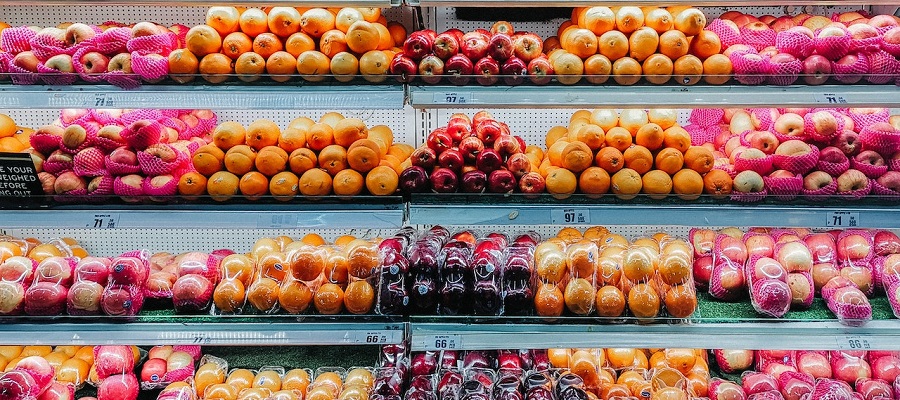The Role of Grocery Wholesalers in Sourcing Food Products
Grocery wholesalers play a crucial role in the food supply chain, providing retailers, restaurants, and other foodservice establishments with the products they need to meet the demand of their customers. But how do these wholesalers source the products they offer? In this article, we'll explore the various ways that grocery wholesalers source their products and the factors that influence their sourcing decisions.
Direct Sourcing from Producers: One Approach to Product Sourcing
One way that grocery wholesalers may source their products is by directly purchasing from producers, whether they are local farms or larger commercial producers. This approach allows the wholesaler to have a direct relationship with the source of their products, which can help them to ensure the quality and consistency of their offerings.
In some cases, grocery wholesalers may have long-term contracts with specific producers, which can provide stability and predictability for both parties. These contracts may outline the terms of the relationship, including the types and quantities of products to be purchased, the pricing, and any other provisions such as delivery schedules or quality standards.
Sourcing Through Distributors and Brokers: Another Approach to Product Sourcing
Another way that grocery wholesalers may source their products is through distributors or brokers. Distributors are companies that specialize in the distribution of specific types of products, such as fresh produce or meat, and may work with a range of producers to offer a diverse selection of products to their customers. Brokers, on the other hand, act as intermediaries between buyers and sellers, facilitating the sale of products but not taking ownership of them.
Grocery wholesalers may work with distributors or brokers for a variety of reasons. For example, they may not have the resources or expertise to directly source certain types of products, or they may want to access a wider range of products without having to establish relationships with multiple producers. Working with distributors or brokers can also help grocery wholesalers to access products from different regions or countries, which can be useful in cases where local sources are limited or unavailable.
Factors Influencing Sourcing Decisions: Quality, Price, and More
There are a range of factors that can influence a grocery wholesale's sourcing decisions, including quality, price, availability, and sustainability. When it comes to quality, grocery wholesalers typically prioritize products that are fresh, safe, and meet certain standards for taste, appearance, and other attributes. This may involve working with producers who adhere to certain quality standards or certifications, or conducting their own quality inspections of the products they purchase.
Price is another important consideration for grocery wholesalers, as they need to be able to offer competitive prices to their customers while still covering their own costs and making a profit. Factors that can affect price include the cost of production, transportation, and storage, as well as demand and supply dynamics in the market.
Availability is also an important factor for grocery wholesalers, as they need to ensure that they have a steady supply of products to meet the needs of their customers. This may involve working with multiple sources or using a variety of sourcing approaches to ensure that they have access to the products they need.
Finally, sustainability is increasingly becoming a key consideration for grocery wholesalers, as more and more consumers and businesses are looking for products that are produced in an environmentally and socially responsible way. This may involve working with producers who use sustainable practices or sourcing products from sources that have a lower environmental impact.
The Importance of Strong Supplier Relationships for Grocery Wholesalers
Strong supplier relationships are important for grocery wholesalers for a number of reasons.
-
Quality products: By developing strong relationships with suppliers, grocery wholesalers can ensure that they are consistently receiving high-quality products that meet the needs of their customers. This is especially important in the grocery industry, where freshness and food safety are of paramount concern.
-
Competitive pricing: Strong supplier relationships can also help grocery wholesalers negotiate more favorable pricing for the products they purchase. This can be especially important in a competitive market, as it can help wholesalers offer competitive prices to their own customers.
-
Reliability: Good supplier relationships can also help ensure that grocery wholesalers have access to a reliable supply of products. This can be especially important in times of increased demand, such as during a pandemic, when the supply chain may be disrupted.
-
Innovation: Strong supplier relationships can also encourage collaboration and the sharing of new ideas and technologies, which can help wholesalers stay competitive and offer their customers new and innovative products.
In summary, strong supplier relationships are important for grocery wholesalers because they can help ensure the availability of high-quality products at competitive prices, improve reliability, and encourage innovation.
conclusion
Grocery wholesalers are businesses that provide retailers, restaurants, and other foodservice establishments with the products they need to meet the demand of their customers. These wholesalers offer a wide range of products, including fresh produce, meat, dairy, baked goods, and non-perishable items such as canned goods, grains, and condiments. They may source these products directly from producers, or they may work with distributors or brokers to access a wider range of products. The factors that influence a grocery wholesale's sourcing decisions include quality, price, availability, and sustainability. Quality is a top priority for grocery wholesalers, as they need to ensure that their products are fresh, safe, and meet certain standards for taste and appearance. Price is also an important consideration, as grocery wholesalers need to offer competitive prices to their customers while still covering their own costs and making a profit. Availability is also a key factor, as grocery wholesalers need to ensure that they have a steady supply of products to meet the needs of their customers. Finally, sustainability is increasingly becoming a key consideration for grocery wholesalers, as more and more consumers and businesses are looking for products that are produced in an environmentally and socially responsible way.


